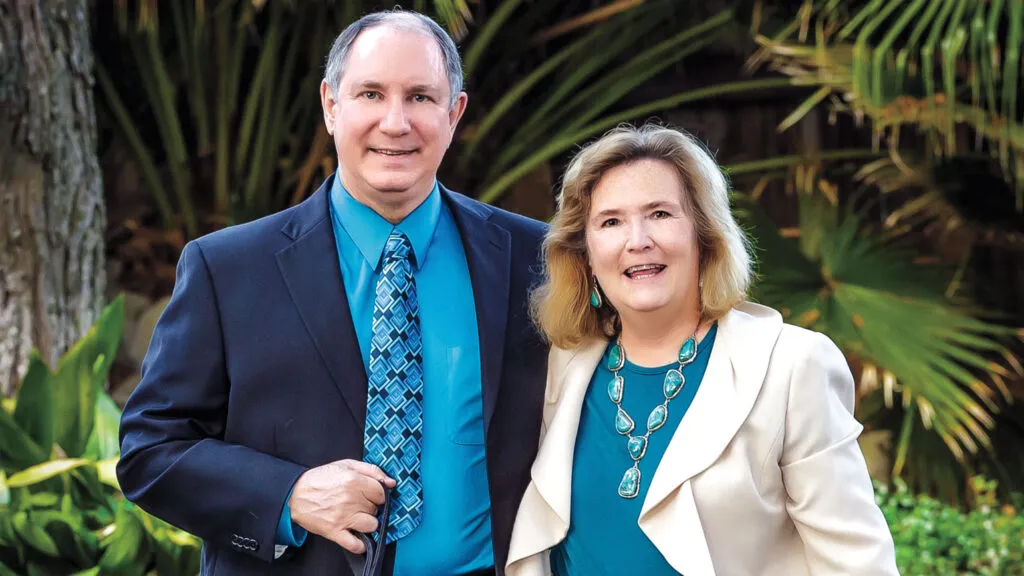Dr. Jeffrey Long, a practicing radiation oncologist, founded the Near-Death Experience Research Foundation and is among the leading researchers of near-death experiences (NDEs), which he defines as conscious, lucid experiences at the time of an imminent life-threatening event while the person is unconscious. Dr. Long has collected more than 4,000 accounts from around the world. With his wife, Jody, serving as webmaster, the Longs share these experiences at NDERF.org. Dr. Long sat down with Mysterious Ways to tell what he has learned.
How did you become interested in NDEs?
When I was doing my residency training for radiation oncology, I read a short piece in The Journal of the American Medical Association about something they were calling near-death experiences. I was fascinated because there was no medical explanation for the reason these events should happen.
Community Newsletter
Get More Inspiration Delivered to Your Inbox
You can’t be clinically dead and yet retain consciousness. My cancer patients were confronting death, but it wasn’t a subject I felt comfortable talking to them about, certainly not
the possibility of life after death. So the article stuck with me, but I didn’t see any application to my medical practice.
A few years later, I was having dinner with a friend and his wife. She told me how she’d had an allergic reaction while under anesthesia during surgery and then coded. I had an odd feeling that there was more to her story. So I asked her: “Were you aware of anything after your heart stopped?”
“Well yes,” she said, surprised at my question. She described being completely aware of the panic in the operating room. “I left my body and was transported through a tunnel to a place that felt like heaven. I saw a review of my entire life and met with these beings who gave me a choice of staying or going back to earth. I didn’t want to leave, but I ultimately made a choice to return. It was the strangest thing.”
“I think you had a near-death experience,” I said and told her of the article I’d read. Neither of us really knew what to make of it, but it made me want to study these events from a medical perspective. I was curious but highly skeptical. I wanted to understand these events by hearing from the people who had experienced them. That was my reason for starting the NDERF website in 1998.
What was your biggest finding from your research?
After analyzing thousands of experiences, I can say conclusively that NDEs are real and, more important, are evidence that there is life after death.
What highlights this for me is the overwhelming consistency we’ve seen in these accounts regardless of where in the world they’ve occurred. We have received accounts of
NDEs translated from over 30 languages, and they are strikingly similar, whether the person is Christian, Muslim, Hindu, Jewish or atheist. There’s no pattern of prior beliefs or
life experience that would explain what is happening—which tells me these are indeed real and otherworldly experiences.
Can you explain the process you use to analyze near-death experience accounts for NDERF?
Back in 1998, I created the NDERF website, which features a scientifically valid survey of more than 60 questions, asking people to share their NDEs. The questions ask things like whether they went through a tunnel or saw a bright light, whether they were met by deceased loved ones, if they interacted with a godlike figure, and the emotions they experienced. I ask about their religious beliefs before and after the experience, etc. In addition, I ask them to write about the experience in their own words. I was looking to see if there were similarities to the experiences that would be further evidence for their validity. I wanted to know if what occurred during NDEs was perhaps shaped by prior beliefs. I also wanted to see if there was a medical explanation for the experience, or something else that might discredit it.
According to the accounts you’ve gathered, what are the hallmarks of a typical NDE?
For nearly everyone, they are overwhelmingly positive experiences. Many report seeing a bright light they might identify as a divine presence, as well as being surrounded by an all-encompassing feeling of love, beyond anything they’ve experienced on earth. Upwards of 75 percent want to stay in the afterlife because of the love and joy they feel. As a result, nearly 100 percent no longer fear death. That’s one of the most significant outcomes, an assurance that there is life after death.
Do people ever experience negative NDEs?
The number of people who have reported negative NDEs is so small that some researchers question whether they are actually NDEs. But even in these cases, while the experience is not pleasant in the moment, it often inspires positive change once they return to life and still leaves them with a belief that death was not the end.
Do people experience being in an actual physical place that feels like heaven?
Experiences vary. More than half report seeing an actual realm that could be described as heavenly. Perhaps a quarter are surrounded by light or mist and never see a clearly defined realm. Others never enter what could be called a heavenly realm.
When people do see a heavenly realm, many understand it to be a kind of preview, not the actual heaven. The feeling is often that much of the reality of the afterlife is beyond our ability to comprehend, so what they do experience is something they can more easily relate to.
How common is it to interact directly with God or Jesus?
This is a relatively uncommon experience. Only about 12 to 14 percent report seeing or speaking with a being they know to be God, and about 7 percent interact with Jesus, but it happens often enough to be statistically significant.
One of my favorite Jesus encounters was this person who was a dyed-in-the-wool atheist. Then he had an NDE and actually talked with Jesus. Jesus was wearing a business
suit, and the man asked him, “Why are you dressed like this?” And Jesus said, “You wouldn’t have believed it was me if I was wearing a robe.” They both had a good laugh about this. I should add that the man is no longer an atheist.
How often do people report seeing deceased loved ones during an NDE?
The percentage of people who encounter deceased loved ones during their NDE is about 20 percent. They may be aware of the presence of a deceased loved one, see them or actively communicate with them.
Another interesting thing to note is, while not common, people also report seeing beloved pets that have passed on before them at a rate of about 2 percent.
Do you have any examples of pets appearing in NDEs?
The story that stands out to me is from a woman named Rebecca. She was a horse trainer, and one day while riding, she was thrown. She landed on her head and was knocked unconscious. Before she was revived, she had an NDE. She saw below her the horse she had been riding running back to the stable (an event she later confirmed).
Then she was met by a beloved horse that had died at a previous date. What’s remarkable here is that she had a very detailed conversation with her horse. The horse had died
traumatically, and Rebecca had felt a huge amount of guilt over the death. The horse was able to reassure her that she had nothing to feel guilty about. This experience was
profoundly comforting for her.
How are people’s lives changed by having a near-death experience?
Many people feel led to do something different with their lives. They may work or volunteer in hospice, or do something where they comfort people grieving the loss of loved ones.
Has your research changed your approach in your everyday work as a radiation oncologist?
Yes, definitely! Before I did this research, I was reluctant to talk with my patients about death and the possibility of an afterlife. Now, if I see that my patients want to talk about it, I have no hesitation. I tell them that based on my research, I’m very confident that there’s a wonderful afterlife for all of us and that we will be reunited with our deceased loved ones. And that’s profoundly reassuring to them. To me it’s a blessing to be able to share that with them.
Why do you think people experience NDEs?
This continues to be a major mystery in the NDE researcher community. We have to keep in mind that only about 10 percent of people who code and are brought back to life report NDEs. And yet there’s nothing that differentiates them from other patients who code and don’t have NDEs.
One of our experiencers, in the midst of her NDE, feeling overwhelmed by love and a sense of peace, asked this question of God directly.
“What made me so special that I was allowed to have this happen to me?” she asked.
“Nothing,” God told her. “Love falls on everyone equally. Everyone is special. This was just something you needed to accomplish your chosen life mission.”
The answer, ultimately, is that only God really knows why some individuals have these experiences and others don’t. But NDEs give every one of us the assurance that God is real and that he’s watching over us, so there’s value even to those of us who don’t have these experiences.





